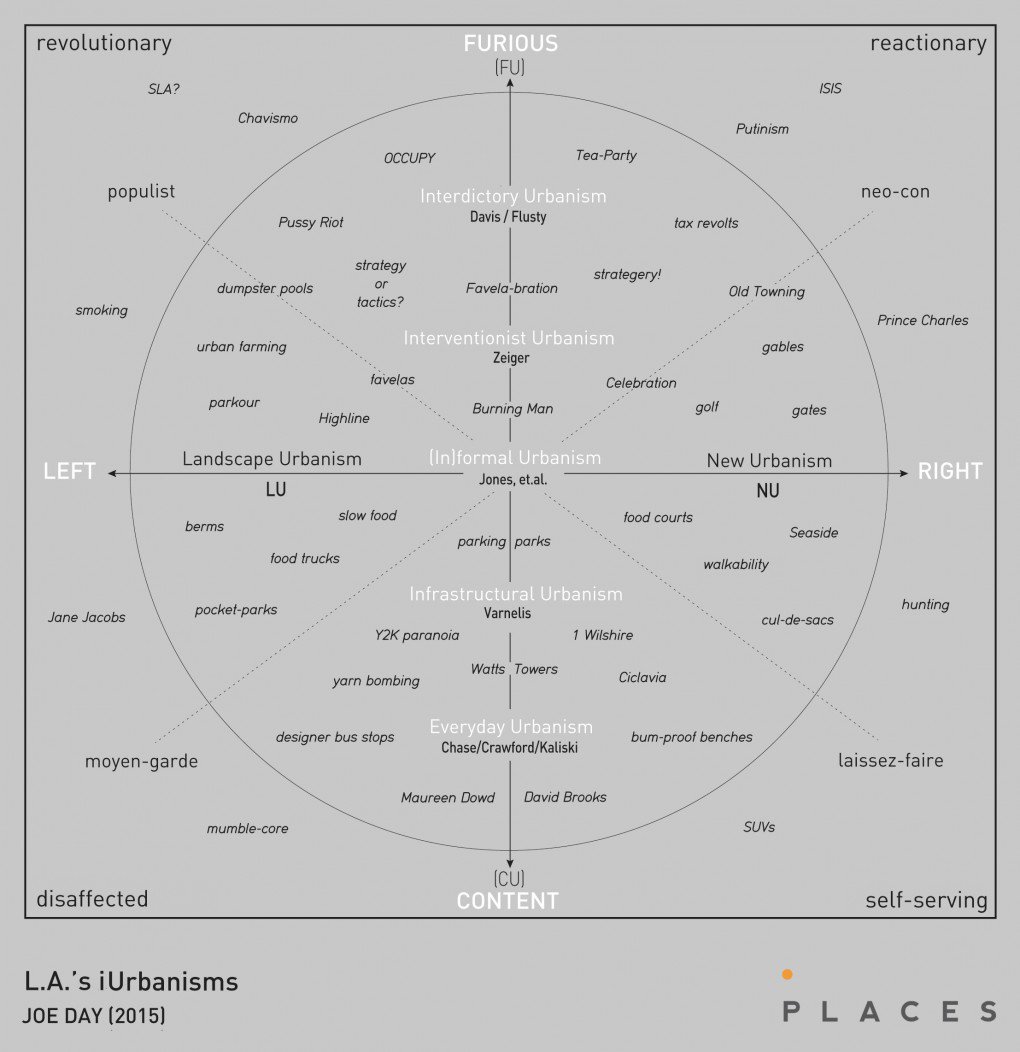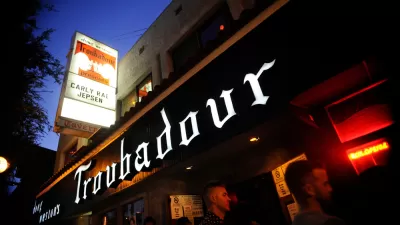Insightful designers continue to seek a better future for Los Angeles architecture by way of L.A. urbanism.
In Los Angeles, in the last decade of the old millennium, these were polarizing debates, especially for the swell of Baby Boomers trying to establish careers in practice and academia. Yet since then the vitriol has eased. Starting in the mid-'90s, as the public Internet began to organize the world, the focus on local "place" has been eclipsed by a fascination with global "space"; and leftish designers in Los Angeles—Boomers no less than Gen-Xer’s and Millennials—who've wanted to erect actual buildings have devised various ways to get past the impasse of the Double No. Today we can categorize these local workarounds under the useful rubrics of Everyday, Interdictory, Infrastructural, Interventionist, and now Informal Urbanism. (While beyond Los Angeles, a welter of more insurrectionist urbanism-without-urbanists has arisen: Burning Man, Occupy, and the Tea Party, to name a few; and taken to a city-altering extreme, one might even include the horrifically anti-cosmopolitan war crimes of ISIS.)
FULL STORY: The iUrbanism of Los Angeles by Joe Day

Planetizen Federal Action Tracker
A weekly monitor of how Trump’s orders and actions are impacting planners and planning in America.

Congressman Proposes Bill to Rename DC Metro “Trump Train”
The Make Autorail Great Again Act would withhold federal funding to the system until the Washington Metropolitan Area Transit Authority (WMATA), rebrands as the Washington Metropolitan Authority for Greater Access (WMAGA).

DARTSpace Platform Streamlines Dallas TOD Application Process
The Dallas transit agency hopes a shorter permitting timeline will boost transit-oriented development around rail stations.

San Francisco's School District Spent $105M To Build Affordable Housing for Teachers — And That's Just the Beginning
SFUSD joins a growing list of school districts using their land holdings to address housing affordability challenges faced by their own employees.

Car-Centric LA Suburb Looks to a Train-Oriented Future
City leaders in Rancho Cucamonga, the future western terminus of the Brightline West rail line to Las Vegas, want to reimagine the city as a transit-oriented, pedestrian-friendly community.

New Alaska Bitcoin Mine Would Burn as Much Energy as the State’s Largest Coal Plant
Fueled by “stranded” natural gas, the startup hopes to become the largest in the US, and to make Alaska an industry center.
Urban Design for Planners 1: Software Tools
This six-course series explores essential urban design concepts using open source software and equips planners with the tools they need to participate fully in the urban design process.
Planning for Universal Design
Learn the tools for implementing Universal Design in planning regulations.
Municipality of Princeton
Roanoke Valley-Alleghany Regional Commission
City of Mt Shasta
City of Camden Redevelopment Agency
City of Astoria
Transportation Research & Education Center (TREC) at Portland State University
US High Speed Rail Association
City of Camden Redevelopment Agency
Municipality of Princeton (NJ)




























